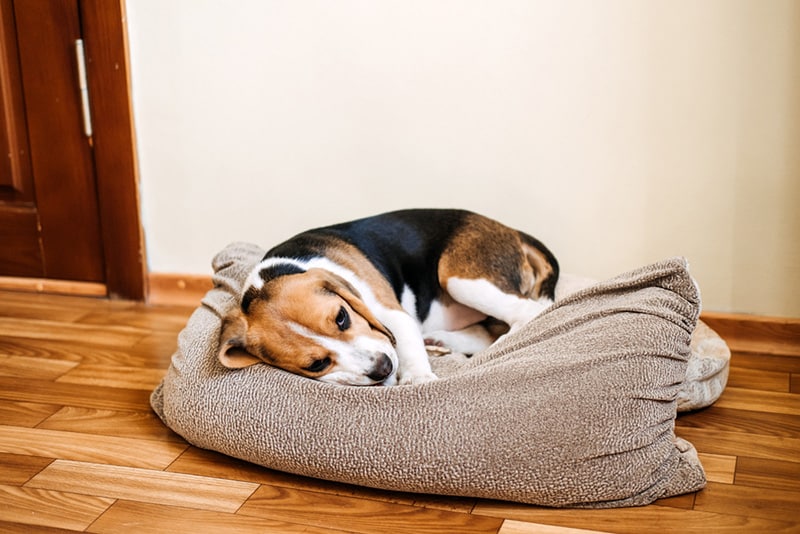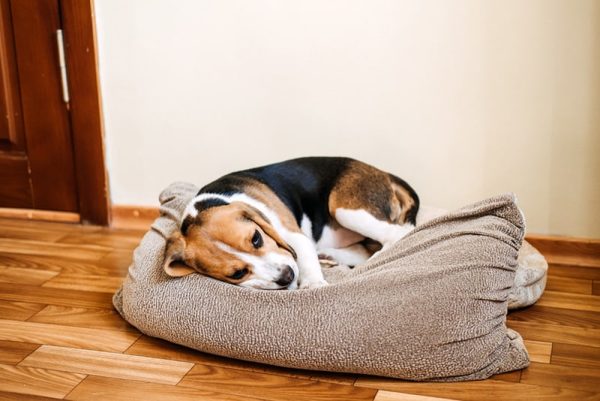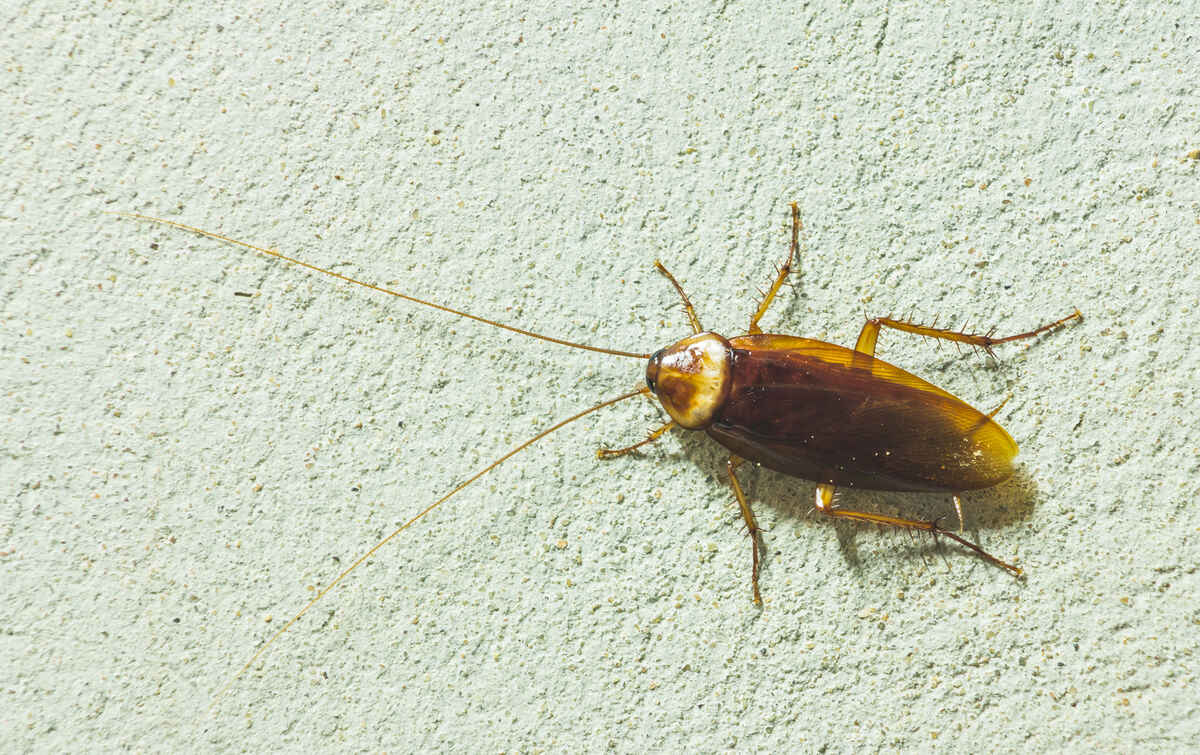If you hear your dog’s stomach gurgle and make noises, it can be concerning. Are dogs’ stomachs supposed to gurgle? Is your dog sick? Like people, a dog’s stomach can gurgle for a number of natural reasons, including simple hunger pangs. However, gurgling can also accompany more serious medical conditions that can result in a medical emergency. It is important to know the causes, the signs, and the risk factors for your dog when it comes to stomach problems.
Here are the causes of stomach gurgling in dogs, risk factors, and what to do if you are concerned.

The 8 Causes of Dog Stomach Gurgling
A number of issues and natural processes can cause stomach gurgling in dogs. In fact, over a dozen different things can lead to gurgling, from hunger to cancer. Here are some of the most common causes of gurgling in dogs.
1. Hunger
- Threat: Benign
- Frequency: Common
Like humans, dogs’ stomachs can gurgle when they are hungry. When a dog is hungry, the muscles of the stomach and intestine contract. Since they are empty, the contractions move around gas and fluids that are inside, leading to the gurgling and growling sounds.
You don’t hear those noises after you’ve eaten because having solid food in there doesn’t create the same sounds.
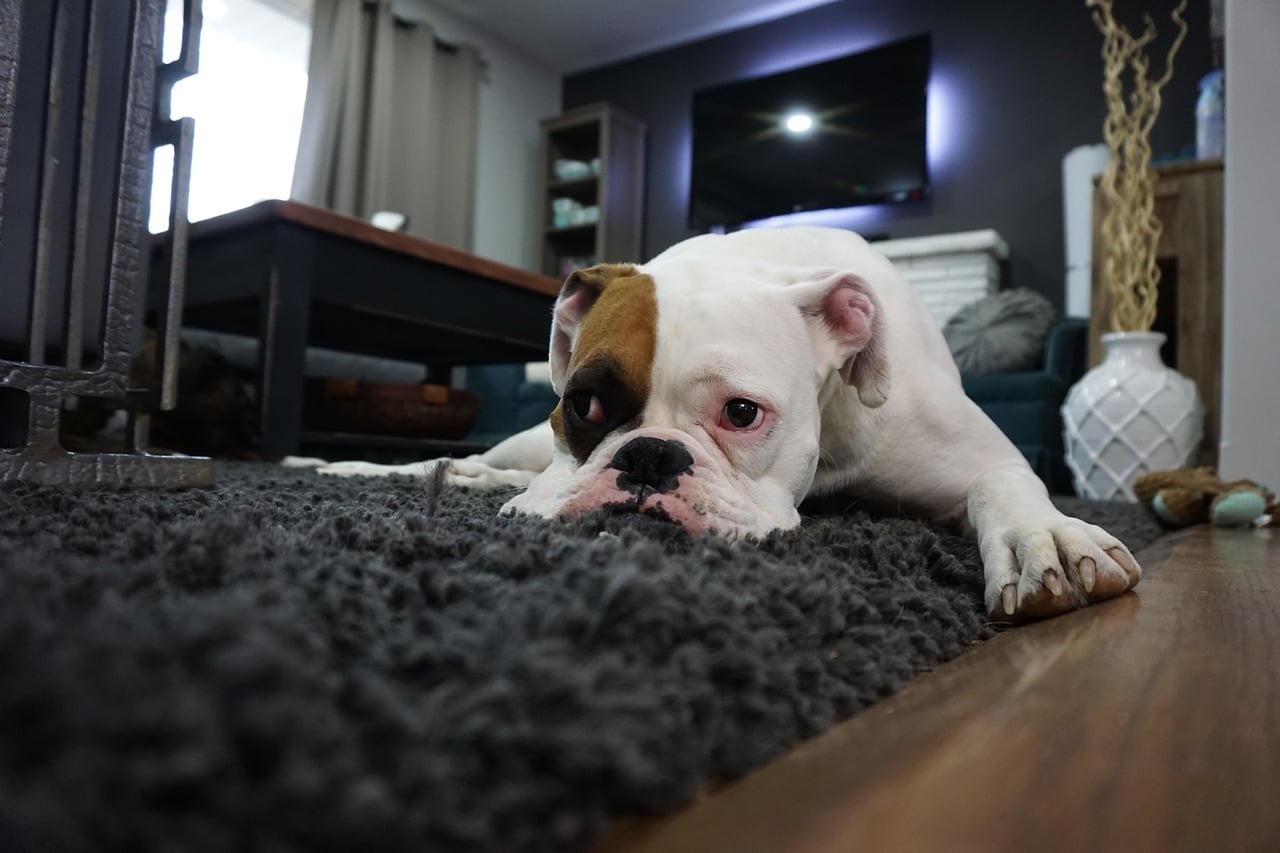
2. Air Consumption
- Threat: Benign
- Frequency: Common
Another thing that frequently causes stomach gurgling in dogs is the consumption of air. Air in the stomach creates bubbles that can rise and burst, which can lead to a gurgling sound. Air consumption is common in dogs that eat their food very quickly. Dogs that scarf down their food or water in seconds will also take in a ton of air while they are eating.
You can prevent your dog from ingesting air by trying to get your dog to slow down while eating by using a puzzle bowl or slow feeder.
3. Upset Stomach
- Threat: Mostly harmless
- Frequency: Common
An upset stomach from eating human food or eating something from outside can cause a gurgling stomach. In most cases, an upset stomach is benign and will resolve on its own within 12 to 24 hours. If your dog has a gurgling stomach as well as vomiting or diarrhea, you might want to consider consulting your veterinarian for treatment and medications.
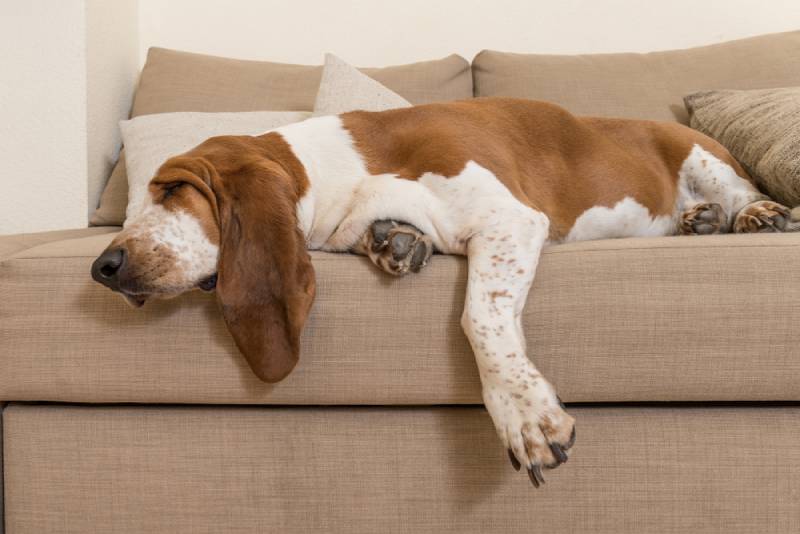
4. New Food
- Threat: Mostly harmless
- Frequency: Common
Sometimes dog owners switch foods. This is natural and happens all the time. However, if you make the change abruptly, there can be a transition period where your dog’s stomach might become upset while they adjust to the new ingredients. Along with a gurgling stomach, your dog may also experience some vomiting and diarrhea.
This is especially true if your dog ate the same food for a long period of time before swapping to a different formula. To avoid an upset stomach from switching food, make the change gradually. Mix the new food in with the old in increasing amounts over the course of 7–10 days. If your dog experiences severe diarrhea or vomiting, see your vet.
5. Gas
- Threat: Mostly harmless
- Frequency: Common
Dogs can get gassy if they eat certain foods or if they gulp down a lot of air. Gas can cause gurgling sounds to emit from the stomach and the intestines as the gas moves through your dog’s system. Gas is usually harmless unless it progresses to severe gas that increases in frequency or is accompanied by other signs. Then it’s time to see your veterinarian.

6. Parasites or Disease
- Threat: Moderate-Severe
- Frequency: Common
Inflammation in the digestive system due to parasites, infections, or other disorders can cause gurgling for a number of reasons, mainly because digestion is interrupted in some way. You may also see vomiting, diarrhea, stomach pain, weight loss, or a poor hair coat to go along with it.
See your veterinarian if your dog is showing any of these signs to get proper treatment.
7. Bloat
- Threat: Emergency
- Frequency: Rare
Bloat is a serious medical condition that mainly affects large-breed, deep-chested dogs. Bloat, also known as gastric dilatation (GD) occurs when the stomach fills with air and expands. In some cases, known as gastric dilatation and volvulus (GDV), it may flip over itself inside the dog, causing a painful twist. Bloat is a serious medical condition that constitutes an emergency.
Untreated bloat can kill a dog in a matter of hours. Serious gurgling along with abdominal distention, stomach pain, retching, and general uneasiness means you need to get your dog to a vet.
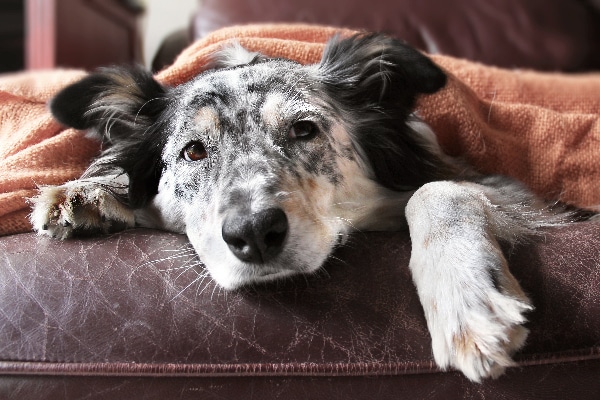
8. Gastrointestinal Obstruction
- Threat: Emergency
- Frequency: Common
Lastly, a gurgling stomach can be a sign of a gastrointestinal obstruction. Dogs can eat things that they shouldn’t and that they cannot digest. If your dog is unable to digest something, it can become lodged in your dog’s stomach or intestines and block the regular passage of food. When this happens, you may hear gurgling sounds as the muscles contract, trying to move the blockage along.
You may also see vomiting, stomach pain, and constipation. See your veterinarian immediately as some obstructions require surgical removal and can become very serious if untreated.
9. Other Causes
- Inflammatory bowel disease (IBD)
- Stress
- Hormonal diseases
- Ingestion of a toxic substance
- New medication


What to Do About Your Dog’s Stomach Gurgling
Stomach gurgling can be concerning, but often, it is nothing to worry about. If you notice that your dog’s stomach is making more noise than usual, you should monitor them for signs of distress. If your dog is not distressed, the gurgling should subside on its own in a matter of minutes or hours. Stomach gurgling is often the byproduct of basic natural processes that are completely harmless.
If the gurgling persists for long periods of time, happens day after day, or is accompanied by pain, distress, or lethargy, you should consult your veterinarian for treatment options.
When Is Stomach Gurgling Serious?
Stomach gurgling may be serious if it’s accompanied by other signs, mainly vomiting, diarrhea, and severe pain or distress. See your veterinarian if you notice these signs.
If your dog’s stomach is gurgling for an extended period of time or seems to be gurgling more than usual with or without other signs, a veterinary visit should help you get to the bottom of the issue.
When to See a Veterinarian
If you have any concerns at all, you should bring your dog in for a checkup. Your vet can examine your dog, check their heart rate and breathing, and take blood work that can illuminate any issues that you cannot easily see. You should also take your dog in immediately if gurgling is accompanied by pain or severe vomiting or if your dog is at high risk for obstruction, blockage, or bloat.
Large dog owners should be acutely aware of the risk of bloat. Similarly, if your dog has a history of eating things that it shouldn’t or has been blocked before, you should keep an ear out for unusual gurgling.
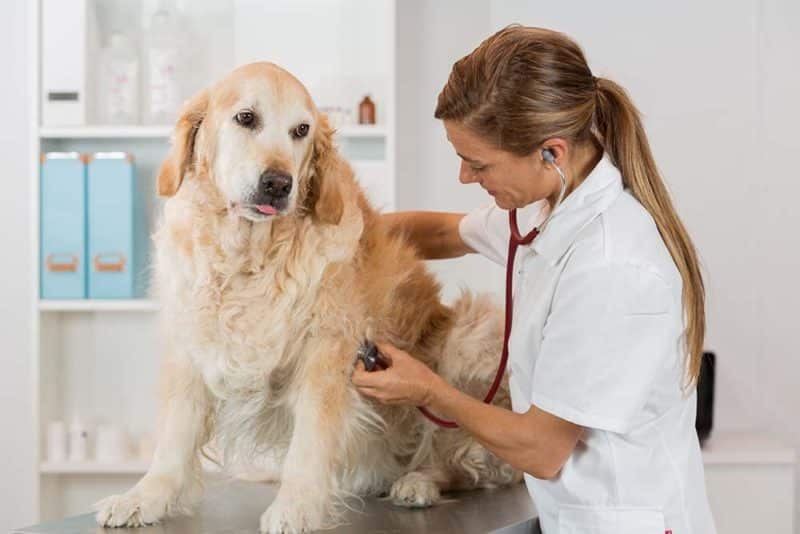

Conclusion
Stomach gurgling is common in dogs. Most of the time, it is harmless. Your dog could simply be hungry. In other cases, it can be an audible sign of something more serious happening to your dog. If you are concerned about gurgling that persists and is very loud or if your dog is at risk for more serious issues, you should consult your veterinarian for more information and targeted treatment.
See also:
Featured Image Credit: Iryna Imago, Shutterstock

